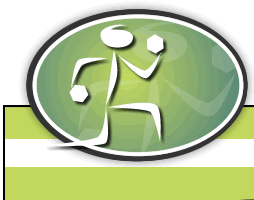Just fresh from the ACSM CPT exam
Hey everybody
Writing to you all from Denmark. Today, I passed the ACSM CPT exam with 700 points out of 800, where 550 points are required to pass. I have a professional bachelor (a type of bachelor, we have here in Denmark) in "Health and Nutrition", which combines health humanities, communication, nutrition and exercise science, into one multi-disciplinary degree. Other than that, I have been working for 2 years as a fitness instructor - i.e. someone making basic training programmes, mostly people who have recently started to exercise - in a gym. I took a 3 month course, to qualify for this job.
Therefore, I have relevant experience and knowledge within the topics that are covered in the exam. HOWEVER, I worked my butt off for 4 months. I cannot thank the people, who have posted their experiences from the exam on this page, enough and I would literally not be as prepared for the exam as I was, had I not found this page. Therefore, I am motivated to and feel that it is necessary for me, to pass on my experience to other readers, also.
First of all, the exam is 150 questions in 150 minutes, which I thought was tough. It covers a lot of questions; some simple - if you have prepared yourself for the exam - and some quite hard. I agree with the other people who have posted on this page; the exam IS hard and you need to be prepared. What previous posters on this page have written, I agree with; especially in terms of what you have to know and what you will be asked (actually, I think that I got several of the exact same questions).
Here is what I think you need to know (in your sleep):
- Calculations: HRR/VO2R, ideal body weight, % HRmax, BMI, WHR etc. These are basics and you should know them by heart. Know how to calculate back and forth from different types of measures of energy expenditure, such as from MET to kcal*min^-1.
- Risk stratification: Know all the risk factor thresholds. I made flash-cards and notes to put on my wall. I was asked quite a few questions on this topic, through cases and such.
- Exercise science terminology and exercise programming: Know the common terms, such as detraining, reversibility, specificity etc. Have a very good idea about FITT recommendations for different groups. Know what the implications are of different training modalities, on the human body.
- Physiology: Know the heart, by heart (funny, I know). Also, understand what is meant by "intrinsic pacemaker". Understand basic muscle structure and know the fundamentals of muscle contractions.
- Anatomy: Understand the different planes, which movements that operate in these and what muscles, eccentrically and concentrically, make these movements happen. You need a good basic understanding of human anatomy. Also, know the rotator cuff; what muscles are part of it, as well as the movements these perform in the body.
- Safety and care: Understand basic care of joint unjuries, first aid and basic pathophysiology (origins of angina, problems with hypertension etc.).
- Nutrition: Understand different types of carbohydrates, what micronutrients are and how much calories relate to weight loss (e.g. how many calories in needed to be burned, in order to burn 1 lb of fat) and how weight loss is accomplished.
- Legal stuff: Know legal terminology, such as malpractice and negligence. Also, understand the different applications of the documents involved with exercise testing and prescription, such as an informed consent and a release form/waiver. Understand the legal aspects of these and what they each should contain.
There is without a doubt much more, but this should do for now.
My last tip: be very serious with your readings. Make sure you book your exam so that you have ample time to prepare yourself for it. I chose 3-4 months and would not have planned for a minute less. For some people, more may be necessary, for others, less.
I hope you guys can benefit from my post. I got so much out of reading previously posted experiences.
Good luck :)






